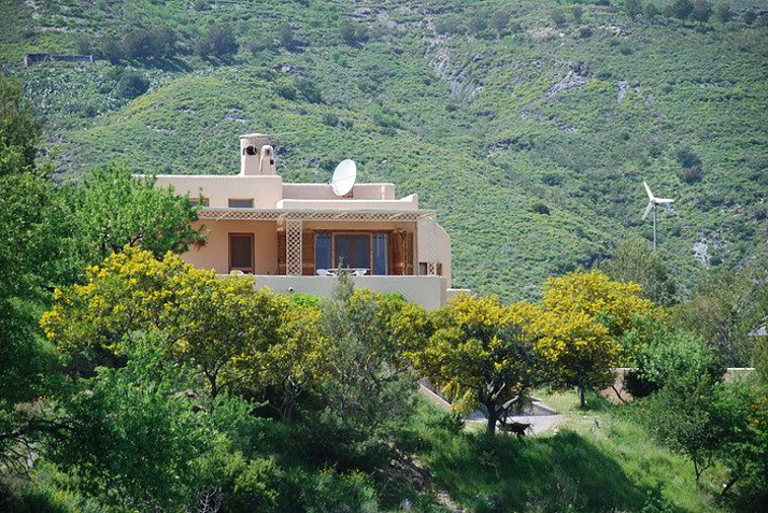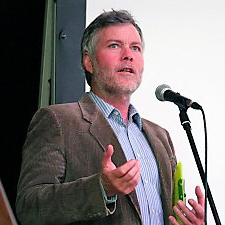To state the obvious, political and economic change happens in all kinds of ways including through crisis and calamity.
For those of us working for change at local, municipal and regional scales, this is the moment when many of the solutions we’ve been promoting are needed and the conditions for building the foundations for longer term change are favourable.
There’s much to explore on this topic, obviously, but let’s just focus on a few points which might inspire immediate action and kick off a continuing conversation in our wider community of changemakers, and especially here in the South West, UK.
My friend and fellow Devon-based organiser, Ben, provides the perfect jumping off point with his recent question:
Are there economic moves we can make locally that might start addressing our needs outside of the main economic system to maintain incomes, access to the essentials, exchange our labour, distribute goods etc?
The first move to make is one of attention. Let’s learn the lessons this crisis is teaching about the importance of economic inclusion, decentralisation and bioregionalism, as well as about the divisive patterns of rivalry, blame and authoritarianism.
And let’s be especially observant, noticing the practical opportunities to facilitate more diversity, local ownership and provisioning, positive influence on local government actors, and citizen participation.
Second, organise and work online using collaborative tools of all sorts. The work of organising is, above all, about education and information sharing, spreading knowhow, building relationships and working collectively, and ultimately, developing political and economic power.
Until now, the barriers that have limited participation for many citizens have been time scarcity and physical distance. Now, these barriers have shifted, creating new opportunities to spread knowhow, build coalitions and collaboration.
Working online requires some different practices and skills, so the first bit of knowhow to learn and spread is how to work effectively online with tools like Zoom, Slack, Loomio, etc.
There are alternatives to the corporate platforms, too, so don’t feel locked in to Zoom – try Fairkom.eu, for example, or What’sApp alternative, Signal. Third, – and this directly answers Ben’s question – prepare for economic hard times by growing food, and building solidarity-oriented networks and collectivities of all sorts.
This isn’t ‘collapse-nik’ advice, just sensible advice given the obvious economic disruption caused by this pandemic and mounting concerns about sustained – years not months – economic contraction.
Here are some suggestions to help you get started – start a mutual aid network, launch a ‘gift circle‘ and/or ‘Local Exchange Trading System.
Get involved in a local COVID-19 mutual aid group – they’re popping up all over. There are other models of mutual support out there, so do some research and start making things happen. And grow food in your garden and/or elsewhere, including guerilla gardening.
Fourth, take advantage of government assistance programmes. It may change and there may be additional guidance briefings published in the future. Research and remain alert to assistance provided by local councils, as well.
Fifth, local businesses may benefit from participating in a mutual credit system. It’s not a quick fix, but could provide some much needed cushion. Be prudent and pro-active – don’t sit on your hands and wait for economic depression.
Here’s a link to LowImpact.org which explains the features and benefits of such a system.
They’re partners in developing the OpenCredit Network. It may require enlisting the participation of your supply network, so start those conversations, now.
Finally, start preparing for longer term transformation of local and regional economic systems. Participate in helping new local, resilience-building enterprises get started, or young enterprises access the support they need to become established.
This includes farms and market gardens, housing CLTs and coops, car sharing clubs, coach services and even railways. If you live in the South West region of the UK you can invest in the South West Mutual, for example.
Once it’s up and running, this cooperatively-owned, community-facing bank will provide important finance and credit for pro-social and regenerative businesses across the region. EdVenture in Frome, Somerset; Local Spark Torbay; and Totnes REconomy Project run entrepreneur support programmes as well as Local Entrepreneur Forums that mobilise community finance and knowhow to support local regenerative enterprises.
There are social enterprise networks across the region, as well as the School for Social Entrepreneurs, based on the Dartington Estate, providing additional opportunities to connect peers, gain access to expertise, funding, etc.
These six points neatly sum up an action plan for people and organisations in the South West interested in making social, economic and political change in this region. That’s from my perspective, anyway.
The COVID-19 outbreak is very serious but it won’t be the last pandemic or crisis we’ll have to face. We can’t be satisfied with binge-watching sitcoms or Scandi crime dramas, nor incessantly posting our outrage at politicians and their enablers.
Rather, we need to fully participate in our own lives. We have inherent rights to exist, to health, happiness and wellbeing, freedom and justice, and to work with others to create the conditions for these. Perhaps this is the lesson.
Jay will be teaching on MA Regenerative Economics which begins in September 2020.






